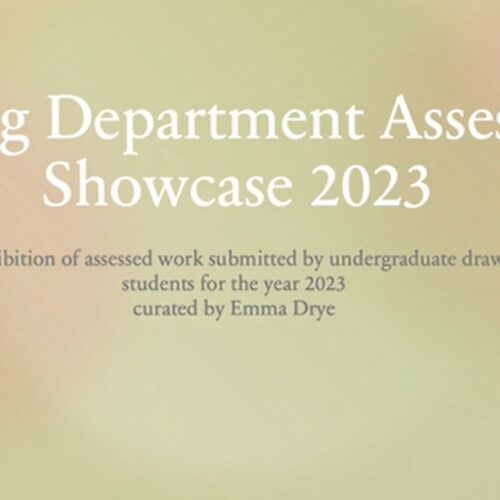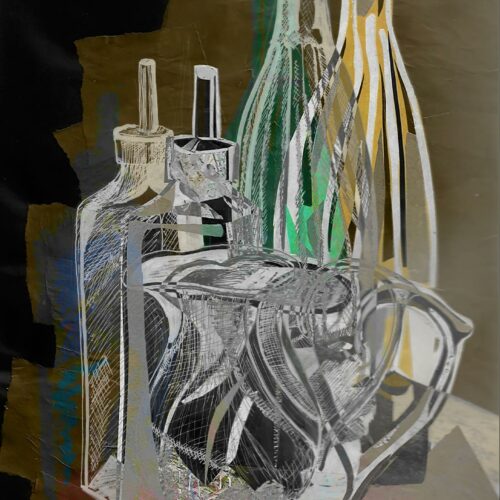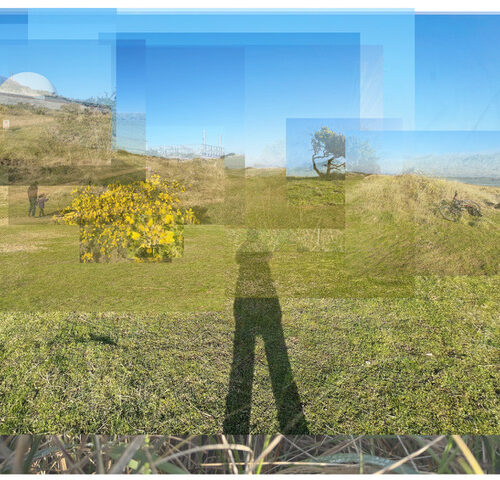
Exploring David Lake’s listening logs
As part of the Music 1: Composing Music course (and, indeed, many of the other Music courses) students are required to keep a Listening Log. This should detail any music that the student has listened to whilst composing each assignment; the pieces they choose should include both works that are directly connected to the assignment, and others which are unconnected but still of interest.
It is easy to dismiss the Listening Log as less important than the composition component of an assignment, but this is not the case; listening (especially conscious, careful, critical listening) is a crucial part of improving one’s musical ability. Therefore, when assessing, it is wonderful to see the work of students who have fully embraced the Listening Log, and David Lake’s submission is a perfect example of this.
Perhaps the most impressive aspect of David’s Listening Log is its breadth. The log from his fourth assignment covers Andrea Falconieri (an Italian lutenist and composer, who was unknown to me prior to assessing David’s work), English composer Lennox Berkley, Icelandic experimental pop musician Björk, Danish composer Per Nørgård, and young composer Dobrinka Tabakova alongside more familiar names (Rachmaninoff, Vivaldi, Dvořák and others). Displaying such a wide range of listening demonstrates that David is willing to explore music outside his comfort zone. It is not important to like everything you listen to, but it is important to give everything a chance; it is impossible to predict what you’ll love and what you’ll loath until you listen with an open mind and a critical ear. It is crucial that composers, and indeed all musicians, get their ears dirty and listen to things from every era and every genre.
Some of David’s Listening Log entries are short:
Ferruccio Busoni (1866 – 1924) Sonatina No 3 New composer on me – I had always thought of Busoni as quite modernist, but this 1915-composed Sonatina was neoclassical in form and had hints of Ravel in tonality. Enjoyed this a lot.
Despite its brevity, this is still packed with information, and indicates that the listening was careful; David provides both the date of the composer’s life/death and the date of composition, information regarding his previous assumptions of the composer’s output, an analysis that relates to prior knowledge (his comments on Neoclassicism and Ravel) and his personal opinion of the work.
Some of David’s Listening Logs are more extensive, analytical, and contain score extracts:
Lennox Berkeley (1903 – 1989) I Sing of a Maiden Based on the 15th Century poem describing the Annunciation of Mary set in SATB with organ accompaniment. Outwardly quite simple in style, possibly to reflect the simple nature of Mary’s life and her humble origins, there are some very interesting note movements in this piece, especially in the second line “That is makeless” where the movement in the sopranos to the E is via C and D rather than C and D natural. The E is accompanied by a C# in the Tenor line, giving the entire phrase an uplifting feeling. This is going on my list of “please can we sing” at the Redhill and Reigate Choral Society!

David’s analysis of this piece is not only accurate and relevant, but also linked to his aural appreciation of the work. It is not enough to simply state whether you liked or disliked a composition, but it is crucial to analyse why you felt the way you did.
Engaging properly with the Listening Log component of Music assignments should be a fun, enriching experience; and is an essential part of one’s ‘musical diet’. So, happy listening!
Image Credit: Katherine Jasven






Really great to read a sample from David’s listening log. Coincidentally I came across Falconieri’s Ciaccona (not sure if the same piece referred to in the post) when studying L1, and it is still one of my favourite compositions: https://www.youtube.com/watch?v=bbr5NQh4j8M
Very helpful to me as I have to do listening logs on my music foundation course. Its always good to see different ways to approach things. Great article.